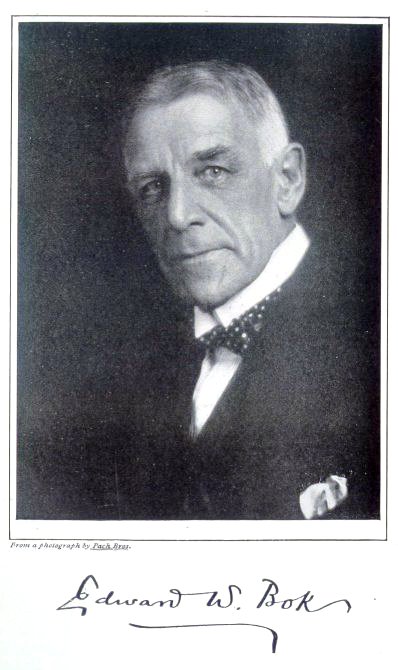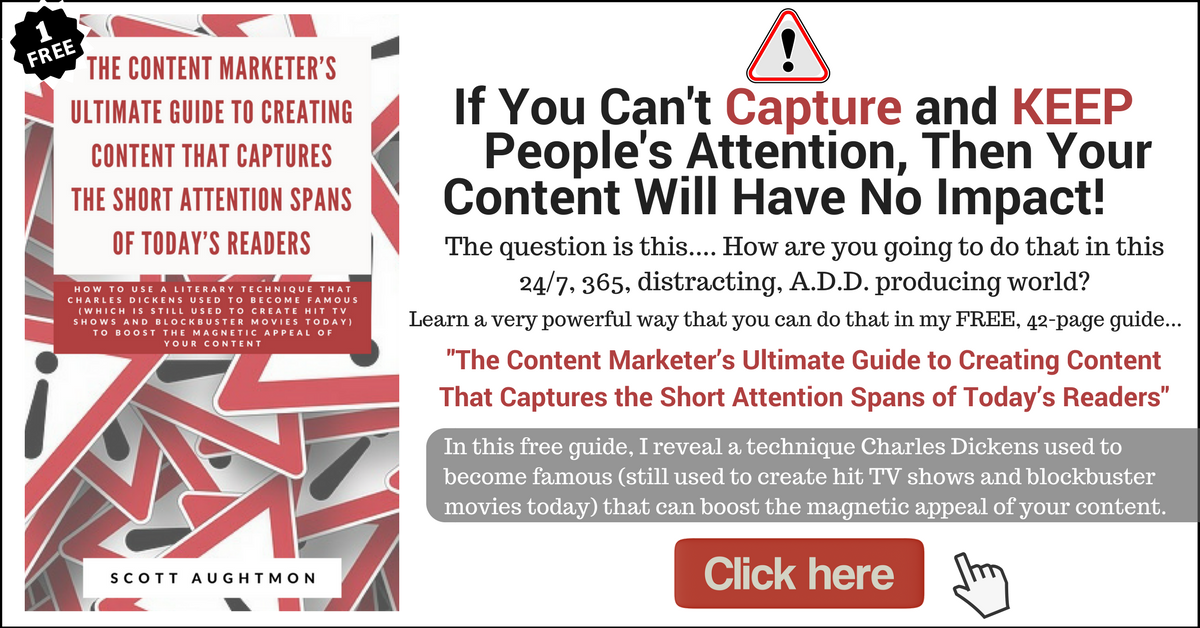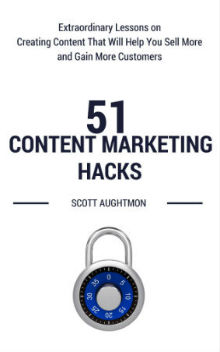Today I want to share some lessons with you about how to come up with content marketing topics.
It’s a lesson from Edward Bok. Who is he?
Edward Bok lived from October 9, 1863 – January 9, 1930 and he was an American editor and Pulitzer Prize-winning author.
He was also editor of the Ladies’ Home Journal for thirty years. You read that right… for THIRTY YEARS.
During those thirty years, he learned some important lessons about the type of content that people really want to read.
He reveals these lessons in his autobiography called “The Americanization of Edward Bok The Autobiography of a Dutch Boy Fifty Years After” (1921).
Bok’s Three Lessons on Choosing Content Marketing Topics
Here are 3 of his lessons:
1. Don’t write “down” to people.
Bok said, “…the average popular magazine of 1889 failed of large success because it wrote down to the public—a grievous mistake that so many editors have made and still make. No one wants to be told, either directly or indirectly, that he knows less than he does, or even that he knows as little as he does: every one is benefited by the opposite implication, and the public will always follow the leader who comprehends this bit of psychology. There is always a happy medium between shooting over the public’s head and shooting too far under it. And it is because of the latter aim that we find the modern popular magazine the worthless thing that, in so many instances, it is to-day.”
Think about the type of content you enjoy most.
- Is it content that talks down to you and makes you feel like an idiot?
- Or is it content that speaks to you as the intelligent person you are?
The kind of content I enjoy most is the kind that speaks to me as an equal, shares intriguing insights, or helpful information.
It is information that make me feel better about myself or my situation.
It is not the kind that makes me feel stupid or hopeless.
You need to make sure that the topics you choose and the ways that you address these topics do the same.
Now let’s look at Bok’s next counter-intuitive suggestion.
2. Don’t give the public what they say they want.
That might sound like strange advice, but listen to why he advises this.
Bok said, “It is the rare editor who rightly gauges his public psychology. Perhaps that is why, in the enormous growth of the modern magazine, there have been produced so few successful editors. The average editor is obsessed with the idea of ‘giving the public what it wants,’ whereas, in fact, the public, while it knows what it wants when it sees it, cannot clearly express its wants, and never wants the thing that it does ask for, although it thinks it does at the time. But woe to the editor and his periodical if he heeds that siren voice!”
This reminds me a lot of what Steve Jobs said, “You can’t just ask customers what they want and then try to give that to them. By the time you get it built, they’ll want something new.”
When I write blog posts, I never just write about topics people are wanting.
I try to write about things people don’t even know they want or I at least want to approach common topics in uncommon ways.
Here are some examples:
- 21 Types of Content We Crave
- 6 Content Marketing Strategies Learned from The Hobbit
- The Content Strategy that Made Justin Bieber a Star
- Content Marketers: A Eye-Opening Lesson On Re-Purposing Content From Disney
- The Amazing, Crazy Story Of How A Man Named Pearl Accidentally Became A Brand
Do you see how these posts are topics that are beyond what people would even realize they want?
You need to do the same thing when you choose the content you create: move beyond just the topics that people say they want.
If you’re wondering how to do this, then listen to what Bok says about this in his last lesson.
3. Determine what they need by focusing on the basic psychological needs and desires we all have.
Bok said, “The editor has, therefore, no means of finding it out aforehand by putting his ear to the ground. Only by the simplest rules of psychology can he edit rightly so that he may lead, and to the average editor of to-day, it is to be feared, psychology is a closed book. His mind is all too often focused on the circulation and advertising, and all too little on the intangibles that will bring to his periodical the results essential in these respects.“
In my last post, on ContentMarketingInstitute.com I shared some content marketing lessons from Ben Franklin and I said, “Never forget that technology changes constantly, but in general, people do not change. Their collective desires, needs, and even their idiosyncrasies have all remained much the same throughout the centuries.”
Bok is expressing the same kind of idea here.
The topics that he found to be the most popular were the ones where he focused on these types of collective desires, needs, and idiosyncrasies that are in all of us.
If you want to come up with magnetic content marketing topics, you must do the same.
When you are searching for topics to create content about, make sure to base them on these basic things.
And when you create content make sure to be as creative and intriguing as you can in how you approach and present these topics.
The next time you sit down to come up with ideas for your content marketing topics, then keep Bok’s unique lessons in mind.
What do you think about Bok’s lessons? Do you agree or disagree with them?
Post your comments below!
If you would like to learn some of the methods I personally use to make common content uncommon, then click the link below…
“21 Types of Content We Crave”
Click here to learn how you can access and watch my“21 Types of Content We Crave” webinar recording in just minutes from now.
“Scott’s concepts in 21 Types of Content We Crave are absolutely brilliant! He simply breaks down an actionable approach that any content marketer can and should start using immediately. I highly recommend Scott Aughtmon as a valuable resource for both entrepreneurs and marketing professionals.” – Bryan Kelly/ WhatTheSpeak.com







